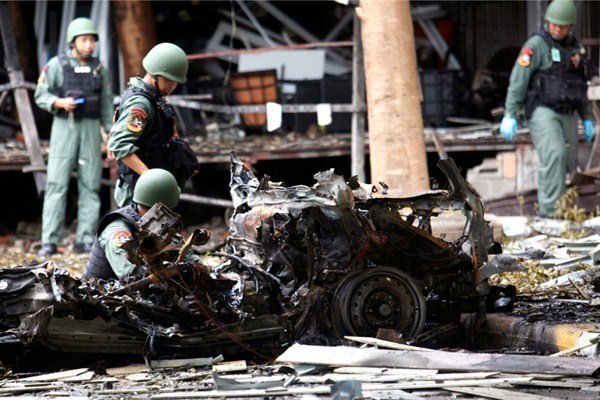At the height of the morning rush hour on Aug. 2, as Bangkok hosted foreign dignitaries attending a high-profile regional security summit, six small bombs exploded across the city, injuring four people. Thai police linked the blasts to southern insurgents, whose leaders denied responsibility.
Two weeks later, reports emerged that the main rebel group leading that insurgency, the Barisan Revolusi Nasional, or BRN, had met Thai government officials for secret talks. The rebels reportedly set out their demands for resuming formal peace negotiations, including “the release of all people detained over suspected links to the insurgency and a transparent investigation into abuses by security forces.” A senior BRN officials told Reuters cryptically that “if the official peace talks are a feast, then these secret meetings are like bringing the cow into the kitchen, but the cow is not even slaughtered yet.”
The fact that the Thai government didn’t deny the meeting took place likely means it did. With a nominally civilian administration back in power in Bangkok after five years of rule by a military junta, albeit with the retired general and former junta leader, Prayuth Chan-ocha, now prime minister, is the peace process in southern Thailand being revived?

